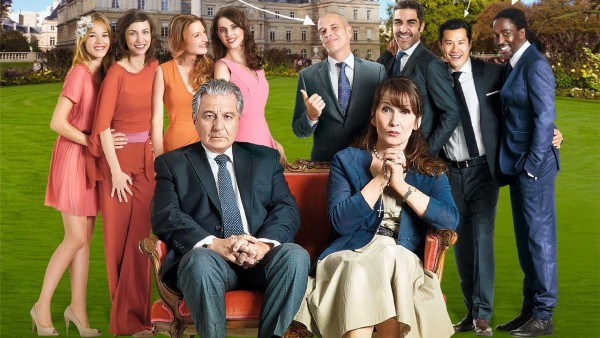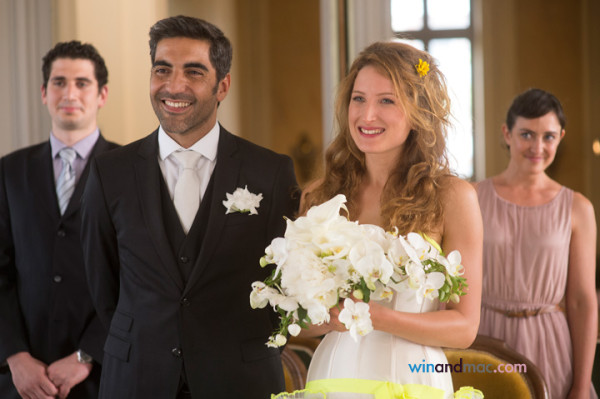France’s encounter with multiculturalism has not been a roaring success of late, judging by the Charlie Hebdo incident, the radicalization of some French Muslim youth and the spate of antisemitism that has prompted thousands of Jews to emigrate. It’s evident that the forces of xenophobia and racism are corroding French society, and that the spirit of tolerance is under siege.
Philippe de Chauveron’s French-language film, Serial (Bad) Weddings, which opens in Canada on March 6, explores this sober theme from a broadly comical perspective.
The light-hearted tone is set in the first few minutes as the three daughters of prosperous couple Claude and Marie Verneuil marry their boyfriends in separate Muslim, Jewish and Chinese ceremonies. Claude (Christian Clavier) and his wife, Marie (Chantal Lauby), are far from happy, having hoped that their sons-in-law would be upstanding white Catholics, like themselves.

Instead, they’re struck with Rachid (Medi Sadoun), an Algerian Arab; David (Ary Abittan), a Sephardi Jew, and Chao Ling (Frederic Chau), a Chinese. All three are linguistically and culturally French, but they’re not quite good enough for the haughty Verneuils.
At the circumcision ceremony of his first grandchild, Claude sighs. “Poor kid,” he says, describing the procedure as barbaric. So imagine what his reaction is when David presents him with the infant’s foreskin, tucked discretely away in a tiny box. By Jewish tradition, Claude is supposed to bury it. Before he can do so, his dog devours it in one hungry gulp, in a scene that is at once sacriligious and uproarious.
When the family gathers for a meal at the Verneuils’ palatial home, tensions rise again. Rachid accuses Claude of being a racist, an accusation he stoutly denies. Chao observes that Jews no longer rule the roost in finance. David calls his two brothers-in-law Jacky Chan and Arafat, while Rachid refers to David as Woody Allen.

With a little bit of help from their wives, David, Rachid and Chao eventually overcome their mutual prejudices and learn to coexist. Being the perfect hostess in spite of her reservations about her new sons-in-law, Marie invites them all for a Christmas meal, during which she graciously serves kosher, halal and Chinese-style turkey. It’s a multicultural moment, set off by a rousing scene in which Claude and his acculturated sons-in-law proudly sing the French national anthem in unison.
Just as harmony dawns, the Verneuils’ fourth daughter, Laure (Elodie Fontan), announces that she and her fiance, Charles (Noom Diaware), plan to get married. Laure’s parents are pleased to hear that Charles is a Catholic. What they don’t know is that he’s black.
When Charles finally appears in person, Claude, being mentally enslaved by racial stereotypes, assumes he’s a valet. The Verneuils strain to be polite, but in reality, they’re downcast. “What did we do to deserve this?” Marie asks in anguish. “We raised them wrong,” Claude chimes in, suggesting that the family tree will be stained by this new strain of blood.
Charles’ father — a prickly man embittered by the legacy of French colonialism in Africa — is opposed to the marriage, too. By now, however, Marie has begun revising her rigid views. The world is changing and we must be open and tolerant, she says.
Due to his growing friendship with Charles’ crusty father, Claude is going through a personal transformation as well. Perhaps people can change after all?
The film’s upbeat mood may be hopelessly rosy and idealistic, but who can scoff at the notion of brotherhood in a world torn by ethnic and religious strife?
OPENS IN TORONTO AND OTTAWA ON March 6, 2015.
CINEPLEX Varsity – 55 Bloor St. WestCINEPLEX Empress Walk – 5095 Yonge St.LANDMARK Cinemas (Kanata) – 801 Kanata Ave.